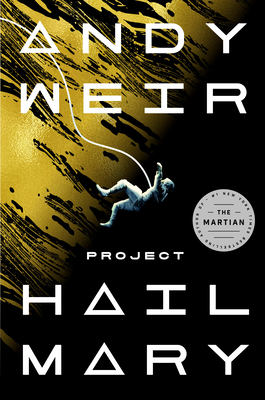
From SRP author Cameron Cooper:
In a recent conversation with Bill Gates, filmmaker James Cameron revealed a growing challenge for science fiction creators: staying ahead of real-world technological advancements. He noted that rapid innovation, particularly in artificial intelligence, is outpacing the speculative futures traditionally envisioned by writers. For creators of speculative fiction, this raises a profound question: How do you imagine a future that hasn’t already arrived?
This phenomenon, where technological advancements outstrip the speculative ideas of science fiction, is not new. It aligns with the concept of the technological singularity, first introduced by mathematician and science fiction author Vernor Vinge. In his 1993 essay, “The Coming Technological Singularity”, Vinge warned that the creation of superhuman intelligence could lead to technological growth so rapid that it becomes impossible to predict or control. Vinge suggested that, beyond a certain point, our ability to foresee the implications of technology would simply break down.
Ray Kurzweil and The Singularity Is Near
Ray Kurzweil expanded on this idea in his seminal book, The Singularity Is Near: When Humans Transcend Biology. In it, Kurzweil charts a path toward a future where exponential growth in AI, biotechnology, and nanotechnology leads to a merging of human and machine intelligence. Kurzweil describes the singularity not as a dystopian collapse, but as an opportunity for humanity to evolve into something more advanced.
Kurzweil’s optimistic vision of the singularity contrasts with the narrative constraints faced by science fiction creators today. While Kurzweil focuses on technology’s potential to transcend biological limitations, writers like Cameron wrestle with its impact on storytelling. How do you craft speculative worlds when today’s breakthroughs make yesterday’s ideas seem quaint?
The Role of Science Fiction in a Rapidly Changing World
Science fiction has always been a genre that pushes the boundaries of imagination, inspiring and even predicting technological innovations. Consider Star Trek‘s communicators as precursors to modern smartphones or Minority Report‘s gestural interfaces, which laid the groundwork for contemporary touchscreens. But as the pace of progress accelerates, speculative fiction must shift its focus.
Rather than attempting to predict technological specifics, today’s writers might explore the societal, ethical, and emotional impacts of these advancements. What does it mean to live in a world where AI rivals human intelligence? How do relationships, governance, or even humanity itself change when machines are no longer tools but partners—or competitors?
Space Opera and the Shift to Coziness
For space opera writers and readers, these trends spark questions about how the genre might evolve. Space opera is often characterized by its grand, sweeping narratives, dazzling technological marvels, and galaxy-spanning stakes. But in a world where technological wonders are expected and stakes are always high—political drama, economic uncertainty, and even over-the-top celebrity boxing matches involving whale-sized six-figure bets—could readers pivot toward something entirely different?
Alex Newton of K-Lytics recently noted:
“With high stakes everywhere—political drama, unending wars, economic uncertainty, and even over-the-top celebrity boxing matches involving whale-sized six-figure bets—it’s no wonder readers are drawn to the exact opposite:
Low stakes, cozy resolutions, and stories where nothing truly bad happens! Google search interest for ‘cozy mystery books’ has steadily increased over the past decade, doubling in just the last two years.”
If readers are flocking to cozy mysteries—and with “cozy epic fantasy” now an emerging trend—could cozy space opera be next? Imagine scaling down the galaxy-spanning conflicts to focus on intimate, character-driven narratives. Picture a small crew on a quiet spaceship, navigating personal dramas, local disputes, or quirky planetary adventures. The stakes are personal, the outcomes uplifting, and the focus is on relationships and resolution rather than interstellar war.
You could argue that Becky Chamber’s science fiction is cozy space opera.
But what if we all started to write it?
Would readers embrace such a shift? As other speculative genres explore this cozy trend, it might only be a matter of time before space opera finds its own way to balance the vastness of space with the warmth of a cozy narrative.
Inspiration and Resources
For those interested in exploring this topic further, here are some resources:
- Read James Cameron’s thoughts on the challenge of writing science fiction in the AI era in this Business Insider article.
- Dive into Vernor Vinge’s original essay on the technological singularity.
- Explore Ray Kurzweil’s optimistic take on the singularity in The Singularity Is Near.
What are your thoughts on the singularity and its implications for science fiction? Could cozy space opera be the next big trend? Share your comments below!
___________________________________________________

Cameron Cooper is a Stories Rule Press author of science fiction — mostly space opera.
Check her SRP books out here.


